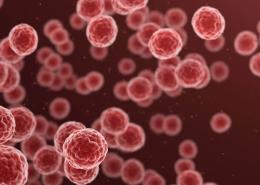Strategies for Managing Inflammatory Bowel Disease (IBD) Symptoms

When biologics to treat inflammatory bowel disease (IBD) were first released over two decades ago, they greatly improved quality of life for many patients. But these first-generation therapies have their shortcomings. Fewer than half of patients treated with these inflammation-blocking drugs will be in remission after one year of treatment. These treatments can also suppress the immune system, making patients vulnerable to infection.
But now, thanks to advancements in our understanding of the immune system, scientists are researching different IBD treatments that will hopefully make an even greater difference in patients’ lives. The two major types of IBD are ulcerative colitis and Crohn’s disease. At Pfizer, years of research in this space is now bearing fruit. Pfizer has two next-generation JAK inhibitors, investigational drugs that selectively block messaging pathways associated with inflammation, currently in clinical studies. Scientists are also studying an investigational medicine that blocks TL1A, an inflammatory mediator that is thought to be linked to IBD. And finally, researchers are working on complementary approaches to treat IBD, which restore the balance of the immune system’s maintenance and repair mechanisms. “We’re trying to tackle IBD from a number of different angles, hoping to move beyond the standard of care,” says Jeremy Gale, Vice President and Clinical Portfolio Leader in the Inflammation and Immunology unit at Pfizer’s research site in Cambridge, Massachusetts.
Turning down the volume
The first generation of IBD biologics target tumor necrosis factors (TNFs), one of a superfamily of signaling molecules involved in inflammation. As research has advanced in recent years, scientists have narrowed in on a specific member of this family, known as TL1A, which is believed to act as an “amplifier,” turning up inflammation across a number of important pathways and regulating various immune cells. In patients with IBD, the TL1A pathway may get turned up too much during cycles of active inflammation. Pfizer researchers are currently testing an anti-TL1A medicine in IBD patients that may selectively block these pathways. “It’s a unique molecule that no one else has in development,” says Gale.
Balancing the seesaw
Scientists have evolved their understanding of the immune system in recent years to view it as a seesaw, constantly maintaining balance between attack and repair mechanisms. As a new approach for treating IBD, scientists are exploring whether restoring the balance of repair mechanisms in the mucosa and epithelial barrier, the gut’s inner lining, may be beneficial. “The gut is constantly being bombarded with insult and injury,” says Gale. But scientists are exploring whether promoting the side of the immune system that regulates defense and repair may help restore this balance in patients with IBD. “It’s like having two children on one side of a seesaw, and none on the other,” says Gale. “We’re hoping to push down on the other side of the seesaw to restore balance.” But since this a new area of science, Gale cautions that it’s still only a “glimmer in scientists’ eyes and needs further research.”
For these next-generation IBD therapies, scientists see hope in using combination therapies that will attack the condition from multiple angles to potentially provide more effective treatments for patients.





